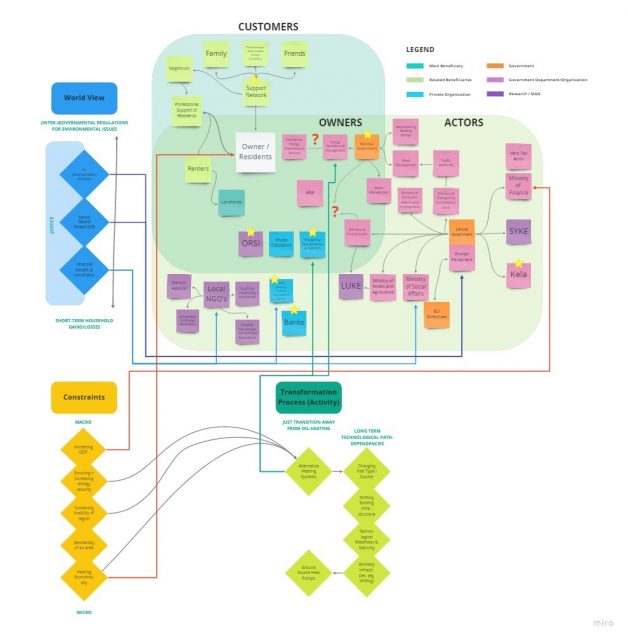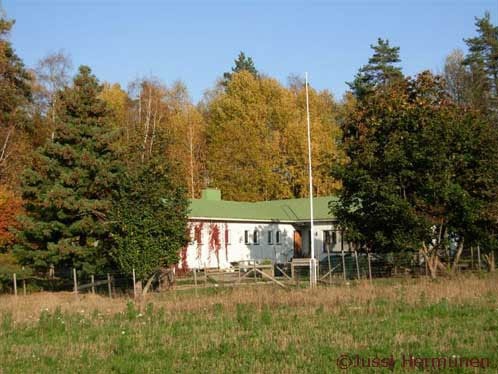This blog post reports on work-in-progress within the DfG course! The post is written by one of the three groups dealing with the Ministry of Environment’s project brief on ‘Just transition to post-oil heating in homes’. The group includes Elizabeth Atkins, Elisa Dametto, Jane Lehtinen, and Uttishta Varanasi.
Since March, our team has been exploring the world of energy transitions and questions of justice in relation to oil-heating in single-family houses. We have interviewed researchers, public sector professionals, individuals, and non-profit organization representatives. During this period, our focus in DfG has shifted from a human perspective to a systems perspective as we have mapped out the relevant players and networks in supporting transitions away from oil-heating to renewable energy options.

To help us understand the bigger picture we have interviewed the following actors: Pirjo Hjelm, a homeowner in Kerava who currently heats with oil; Heimo Einola, a homeowner in Kotka who currently heats with oil and renewable means; Janne Mattila, a Kela employee and homeowner heating with oil; Aalto University professor as part of ORSI (Orchestrating Towards Systemic Impact) eco-welfare research group; Olaf Adan, design researcher at Eindhoven Technical University focusing on governmental support of energy sustainability; and Lisa-Marie Pekkola, Finnish Sami activist and educator currently living in Alta, Norway. Additionally in the supergroup, there have been interviews with Katja Keränen, finance and development manager of Single-Family House Association and Arto Hannula, managing director and Eero Otronen, senior specialist both from Heating Energy Association.

Through our research so far presented in the mid-review online format, one of our main findings is that the opportunity to transition is defined by considerations of individual timing, financial status, regional availability of solutions, and social barriers. There is an evident gap in current support frameworks for transitioning away from oil-heating for those who have fewer capabilities and opportunities for this, including low-income and elderly residents whom make up the majority of oil-heating users. On the other hand, we have discovered a motivation for transition among certain user demographics, but a need for alignment in the above-mentioned factors to support in transitions. There are also varied options with regards to solutions, with a focus on building trust and equity over equality by offering tailored solutions for various residents depending on their context and capabilities; in other words, simply meeting people where they currently are.
As we enter the next stage in our project toward interventions and proposals, we will be using Michie et al.’s (2011) behaviour change wheel as a guide for our intervention design, as well as returning to our questions around maximizing the impact of transitions and the quality and criteria of just transitions. Taking the feedback of the mid-review into account with extending and elaborating on our insights, this will take us towards the most appropriate proposals with directions towards just, equitable solutions to propose.
Reference: Michie et al. (2011) The behaviour change wheel: a new method for characterizing and designing behaviour change interventions, Implementation Science 6, Article number 42.
The DfG course runs for 14 weeks each spring – the 2020 course has now started and runs from 25 Feb to 19 May. It’s an advanced studio course in which students work in multidisciplinary teams to address project briefs commissioned by governmental ministries in Finland. The course proceeds through the spring as a series of teaching modules in which various research and design methods are applied to addressing the project briefs. Blog posts are written by student groups, in which they share news, experiences and insights from within the course activities and their project development. More information here about the DfG 2020 project briefs. Hold the date for the public finale 09:00-12:00 on Tuesday 19 May!
